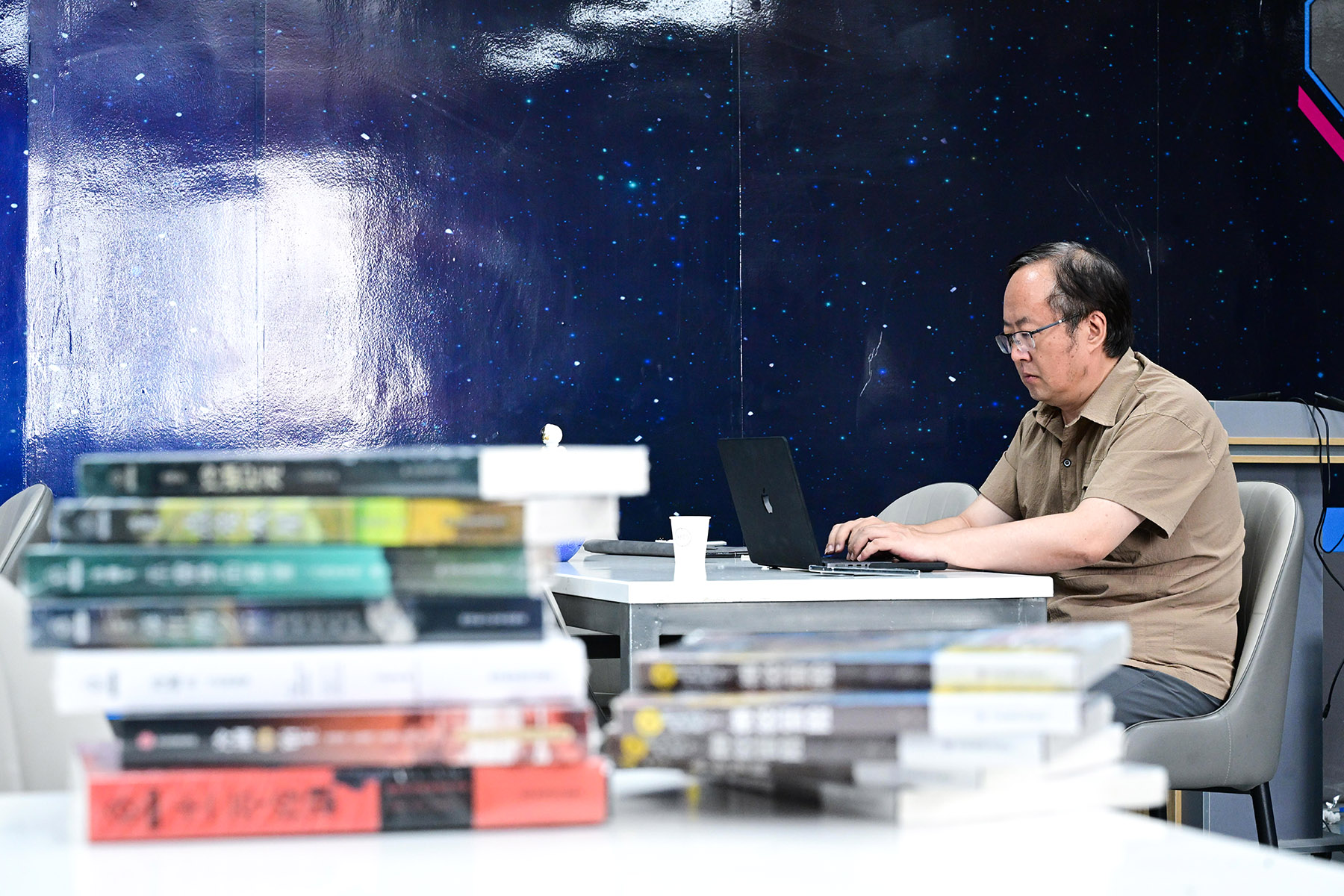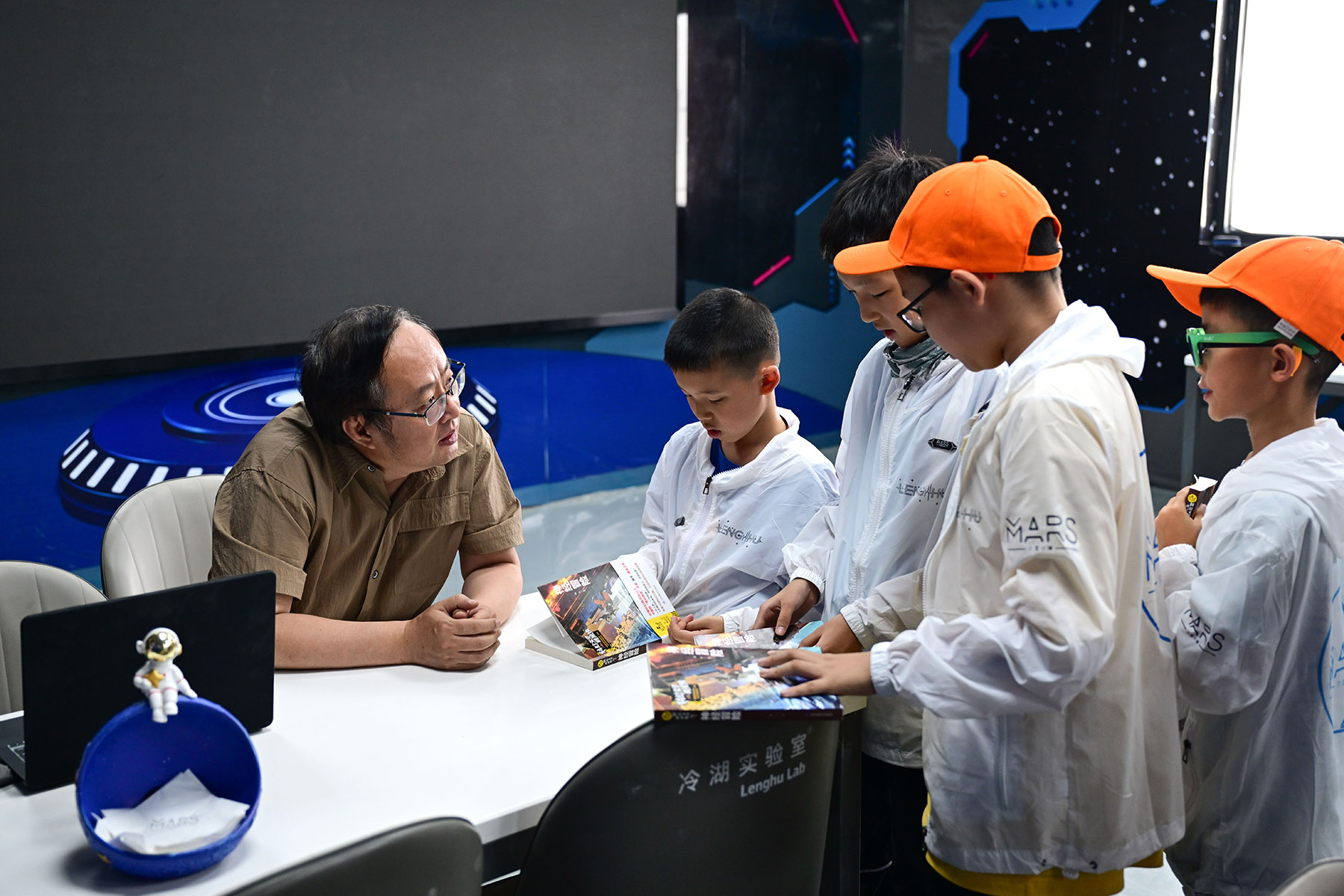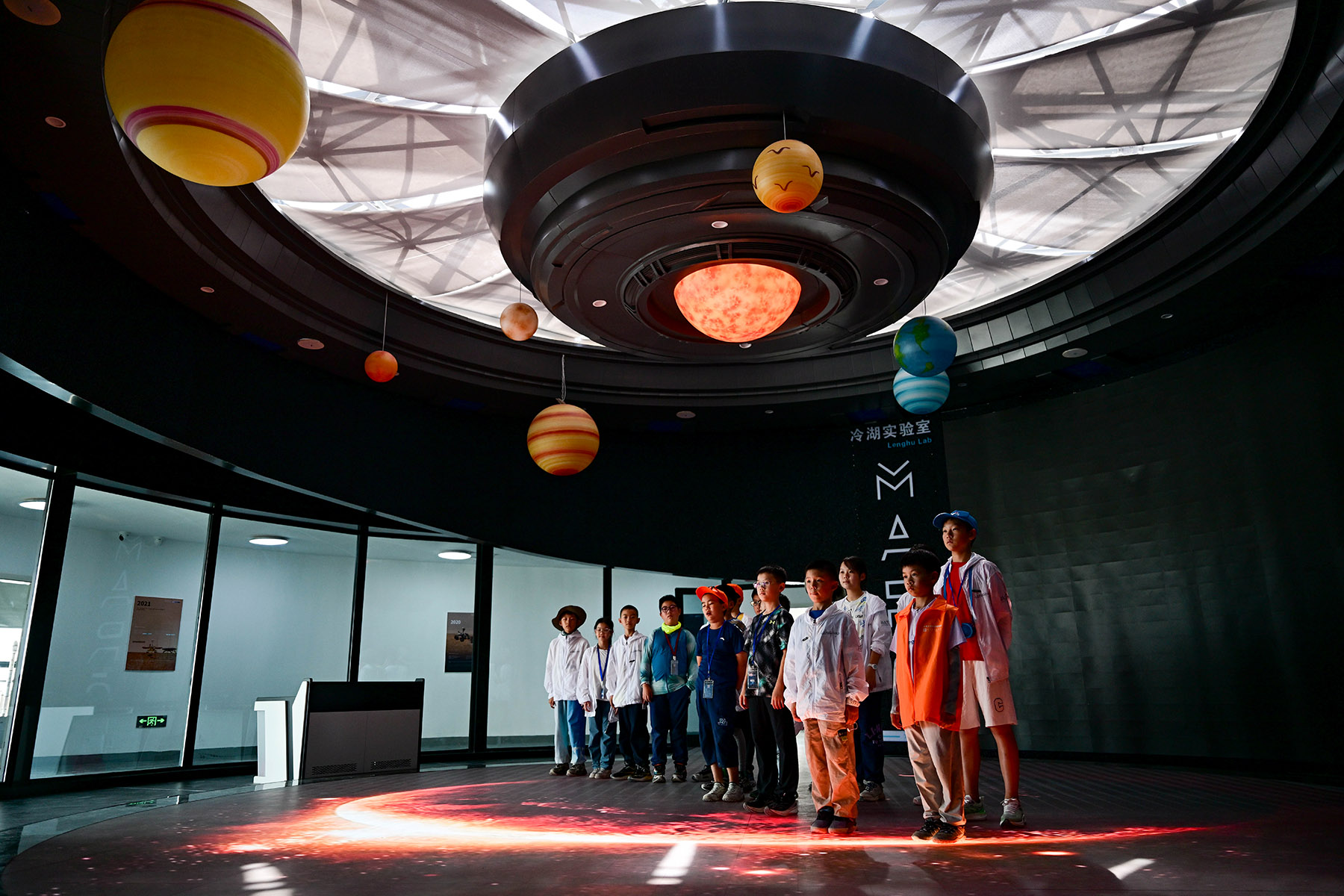Chinese authors explore shifting realities and emotional frontiers as technology transforms storytelling, Yang Yang reports.

Last month, Wang Weilian, 43, won the 21st Baihua Literature Award in the science fiction category for the short story Yige Xiezuo Biaoyanzhe De Zuihou Aiqing (literally, The Last Love of a Writing Performer). He shared the honor with writers Baoshu (Dujia Zhou, or Vacation Week) and Jia Yu (Xiaoshi De Zhenxiang, or Vanishing Truth).
In Wang's imagined future, writing is no longer a spontaneous act of creation but a cultural heritage performance. In this world, humans use technology to remove negative emotions, including those tied to romantic relationships. Yet, one "writer "still longs to experience genuine love untouched by technology.
The work incisively explores the spiritual complexities of the technological age, highlighting that the quest for self-existence and love is the inalienable essence of the human soul, the award jury says.
READ MORE: Trilogy signals arrival of golden age for Chinese sci-fi
Wang explains that the story is actually part of an unfinished novel that he began about 10 years ago when he sensed the changing trend of "our cultural ecology". He sensed changes not only in how literature and art were produced but also in how readers received them.
"I initially approached the idea with irony, imagining that future writers would become performers in a cultural heritage museum," Wang says. "Few understood it then, but with advancing AI, it now seems possible."
A decade has passed since Wang first conceived the story, during which China's science fiction scene flourished. What was once a niche genre has gained wide recognition, drawing writers from diverse backgrounds and resonating with readers both at home and abroad. Writers from all walks of life create science fiction to reflect on reality and imagine the possibilities of the future based on the present.
Baoshu (real name Li Jun), 45, attributes this shift to several factors.
One influence is the popularity of sci-fi works like The Three-Body Problem trilogy.
"The trilogy has become very popular, beyond its original circle, becoming a global cultural phenomenon, which has fueled enthusiasm for science fiction," he explains.

Another factor is the impact of advancements in information technology and artificial intelligence.
As technology accelerates, even those who did not previously engage with science fiction now feel the world is becoming increasingly sci-fi-like, which is a deeper reason for its popularity.
"It seems that only the term 'science fiction' adequately describes our current reality in the 2020s," he notes.
"People will realize that understanding our current reality sometimes requires a sci-fi mindset. Society is no longer stable; it evolves rapidly, with trends hinting at possibilities beyond the present. This brings profound uncertainty, which is perhaps the greatest insight science fiction can offer us," he says.
The genre can also broaden people's understanding by reflecting a deeper, more hidden reality, he says.
At the 21st Baihua Literature Award ceremony in Tianjin this September, Wang expressed joy that science fiction is no longer an isolated niche but a confluence of diverse voices.
"Singers, dancers, programmers, delivery workers … more and more people from different backgrounds are picking up the pen. They are all using sci-fi stories to address the existential anxiety of this sci-fi era. Together, we are exploring the future. Each identity is a beam of light reflecting the times. When these beams converge, we can see the signposts leading to tomorrow: How will humans continue to create their own value and meaning in the future?" he said.
Wang's award-winning story is his radical reflection on literature's value and meaning in the future.
He observes that over the past three decades, literature's traditional roles — as a source of entertainment, knowledge, and information — have been increasingly taken over by various alternatives, such as video games and social media. As a result, literature seems to have become increasingly niche.
Literature is the cultural pulse of Chinese civilization, Wang says, a belief that compels him to ask: under the impact of information technology and artificial intelligence, what remains of literature, and what can it still offer humanity?
"For people like myself who are still creating literary works, I have to find answers to these questions, which is the starting point of this story," he says.

He observes that literature must mirror its time, but few works capture today's rapidly changing world, as many still cling to 19th or 20th-century mindsets.
Among the most profound transformations is how people experience and process emotions. With the rise of the internet, a home-centered lifestyle has become prevalent worldwide, altering the ways people address their emotional needs.
In his short story, future societies use medical treatments to eliminate negative emotions. Wang admits that it is actually a rather conservative idea by today's standards, noting that last year, a news report described a severely depressed person receiving a brain implant that, when activated, alleviates negative feelings.
"Tremendous changes in social structure have led to increasing depression cases", which is also "a reality we need to face", he says.
According to Wang, science fiction, unlike other literary genres, can create more radical contexts for readers to explore. For instance, in the short story, he envisions a future where the profession of writing is nearly extinct. The protagonist, who struggles with psychological issues, finds empowerment and meaning by engaging in this cultural heritage.
"These radical sci-fi settings can produce realistic and believable effects," he says.
Although writers have not become extinct as in Wang's story, the creation of science fiction faces its own challenges.
ALSO READ: Six authors in search of the 'body'
Real-world technology often outpaces sci-fi imaginings, making it tough to craft near-future scenarios, says Baoshu.
"You have to keep up with rapid technological changes to stay relevant," he notes.
He also notes that technological marvels have lost their power to astonish; innovations like high-speed trains now seem ordinary, making it hard to find new, awe-inspiring concepts, he says.
Additionally, visual media, such as films, offer an immediate impact, diverting attention from literature. Many people now only engage with stories after seeing their adapted versions for the screen, Baoshu adds.
The rise of AI-assisted writing also poses a potential threat, raising concerns about fairness and ethics as some may use AI to produce work faster, leading to increased competition and ethical dilemmas, he says.
Contact the writer at yangyangs@chinadaily.com.cn


